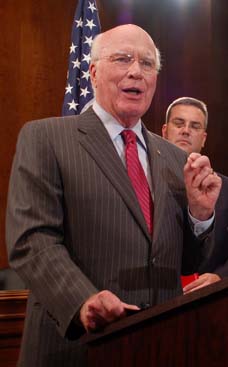
Steve brings more than a little expertise to the table on the subject. In 1966, he completed his undergraduate degree with a major in physical education and minors in French and science. After a two year stint in the Peace Corps teaching French in Sierra Leone, he returned to the U.S., earned his PhD in physical education, then taught at college and in public schools for some 30 years. Steve showed me research indicating that physical activity, which is essential for children's health and well being, also helps them learn in the classroom. In a study published this year, researchers concluded that children focus better after physical activity than when they have been inactive. In the study's most dramatic finding, children actually scored a full year higher in reading comprehension after physical activity than after they had been resting. These findings make perfect sense to me. A classroom full of restless, fidgety children whose bodies are telling them to run around like young puppies will have no end of trouble focusing on their teacher and their textbooks. If those same children have a chance to let out some of that pent-up energy on the playground, their satisfied bodies can rest in their chairs while their minds focus on the task at hand. I'm not surprised that reading, which demands continuous, focused concentration, showed the greatest benefits from the students having a chance to wear themselves out physically. In 2008, Steve worked closely with Rep. Mark Anderson, who introduced a bill to make daily, 30-minute recess mandatory in the state's elementary schools. Anderson is a Republican and Steve is a Democrat, but they found common ground on this issue.
Sierra Leone RPCV Steve Gall is, for lack of a better term, a recess freak believing elementary school children should have a guaranteed, 30-minute period of physical exercise at school, every day
Work their bodies, grow their brains
By Dave Safier, Special to The Explorer
Published: August-05-2009
Caption: Time for school by computerwhiz417 Flickr Creatve Commons Attribution-Noncommercial 2.0 Generic
Steve Gall is, for lack of a better term, a recess freak. He believes elementary school children should have a guaranteed, 30-minute period of physical exercise at school, every day.
Steve brings more than a little expertise to the table on the subject. In 1966, he completed his undergraduate degree with a major in physical education and minors in French and science. After a two year stint in the Peace Corps teaching French in Sierra Leone, he returned to the U.S., earned his PhD in physical education, then taught at college and in public schools for some 30 years.
Steve showed me research indicating that physical activity, which is essential for children's health and well being, also helps them learn in the classroom. In a study published this year, researchers concluded that children focus better after physical activity than when they have been inactive. In the study's most dramatic finding, children actually scored a full year higher in reading comprehension after physical activity than after they had been resting.
These findings make perfect sense to me. A classroom full of restless, fidgety children whose bodies are telling them to run around like young puppies will have no end of trouble focusing on their teacher and their textbooks. If those same children have a chance to let out some of that pent-up energy on the playground, their satisfied bodies can rest in their chairs while their minds focus on the task at hand. I'm not surprised that reading, which demands continuous, focused concentration, showed the greatest benefits from the students having a chance to wear themselves out physically.
In 2008, Steve worked closely with Rep. Mark Anderson, who introduced a bill to make daily, 30-minute recess mandatory in the state's elementary schools. Anderson is a Republican and Steve is a Democrat, but they found common ground on this issue.
In a reasonable world, the bill shouldn't even be necessary. Teachers should be happy to give their children daily recess time voluntarily. But our testing mania has resulted in all manner of counter-productive behavior. No Child Left Behind has led some educators to leave their common sense behind and abandon recess so their students can spend a few extra minutes drilling for standardized tests.
To Steve's disappointment, Anderson's bill failed. The term "mandatory" was more than some legislators, both Democrats and Republicans, were able to accept.
Steve decided, if he couldn't succeed on the state level, he'd see what he could do locally. He volunteered three mornings a week at TUSD's Dunham Elementary, leading what he called "organized recess" for the children.
"Each class is 30 minutes long," he told me, "starting out with exercises. Then we play games like baseball, basketball, soccer, even tennis with mini-nets and foam balls."
Once again, Steve's emphasis on physical exertion has research on its side. Simply allowing students to spend time outside has shown minimal academic effect, while vigorous activity can lead to improved performance in the classroom.
The teachers told "Coach Steve" (as the children call him) how pleased they were with the results. "Attendance is nearly 100 percent when I come," he said proudly, "and the teachers say the kids are more focused and ready to work after the recess period."
Has it helped the children academically? Steve told me last year's AIMS scores improved significantly in most areas. Though he doesn't claim credit for the success, he likes to think he contributed.
Steve plans to return to Dunham this year. He wants the teachers to take a more active role in the program so they can continue without his help in following years. And he's talking to other schools about presenting his ideas about physical education at their teachers' meetings. He's also working on a grant to train teachers to lead PE activities on their own.
And he holds out hope some day he can help shepherd a mandatory recess bill through the legislature.
Dave Safier is a regular contributor to Blog for Arizona.













